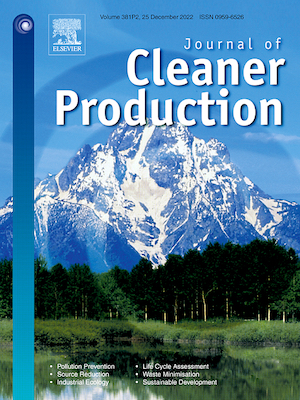Publication: « Behavioral barrier-based framework for selecting intervention measures toward sustainable plastic use and disposal »
Uehara, T., Asari, M., Sakurai, R., Cordier, M., Kalyanasundaram, M., 2023. Behavioral barrier-based framework for selecting intervention measures toward sustainable plastic use and disposal, Journal of Cleaner Production, Volume 384, 135609

There is an urgent need to implement sustainable plastic use and disposal to prevent further negative consequences. As it involves human behavior, intervention measures that induce individual human behavioral changes are essential. While studies and good practices are rapidly increasing in this regard, there is no guarantee that good practices in one area will work equally well in other areas. Therefore, policymakers require appropriate guidance to choose suitable intervention measures for their context. This study proposes a behavioral barrier-based framework (BBBF) to aid policymakers in selecting context-appropriate intervention measures. The BBBF is built on the assumption that certain barriers prevent people from making desirable behavioral changes. The BBBF can help policymakers choose suitable intervention measures for lowering the barriers that inhibit desirable sustainable plastic use and disposal-related behaviors. The framework includes a generic list of barriers derived from possible intervention measures that integrate market-based, regulatory, and behavioral approaches to expedite the identification of critical barriers and corresponding intervention measures. Local stakeholders are involved in the whole process to reflect contextuality and elicit context-specific intervention measures, desirable behavioral measures, and their barriers. A BBBF application was developed and tested in Kyoto City, Japan. This application involved 1000 residents, two focus groups, 14 businesses, and three city officials connected to the issue. Fifteen intervention measures and three barrier types to induce sixteen desirable behavioral changes for achieving Kyoto City's four established policy targets were identified. All barriers were categorized per behavioral approach. The feasibility of the proposed intervention measures was assessed by stakeholders.



